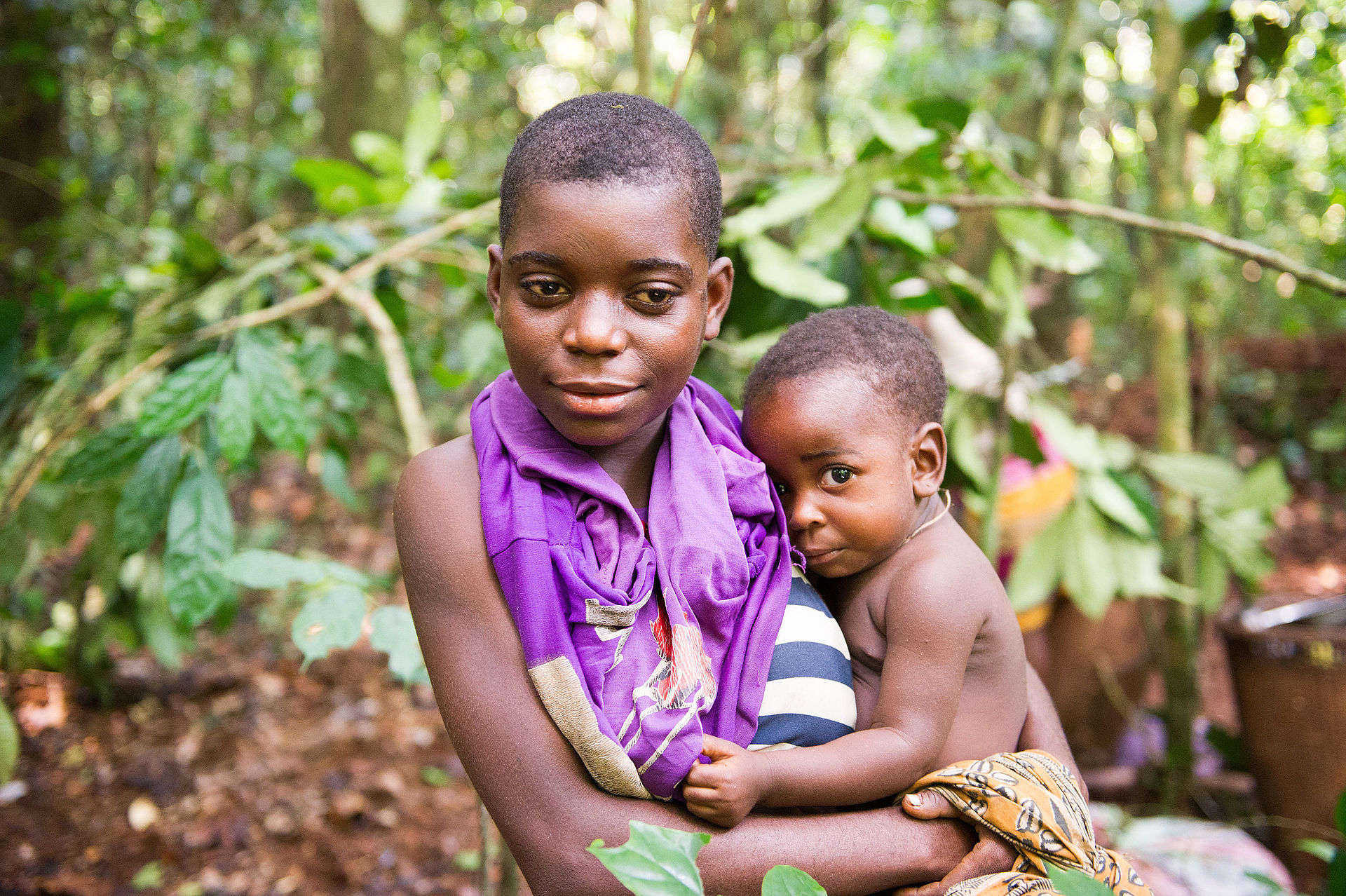World Youth Day still a distant reality
Joaquim Magalhães de Castro
In just one year of close contact with the Bayaka Pygmies residing in the mission of Monasao, in the Catholic Diocese of Berberati, in the extreme southwest of the Central African Republic, Michele Farina, a fidei donum priest of the Diocese of Savona, already finds himself closely connected with his faithful; a privileged witness of the “light and dark sides” of local life.
“The Bayaka know all the seasons well and at all times of the year they know what the forest can give them,” he confides to a reporter for the Agenzia Fides regarding the end of the dry season, “the ideal time for hunting.” In addition to game – obtained using nets, traps and sharpened spears – the forest also offers “delicious” termites at that time, prepared in a special sauce and accompanied with cassava and coconut.
After eight years of pastoral activity in Cuba, Father Farina, realizing the risk of “loss of identity” experienced by this tribe of Pygmies, geographically distributed across several African countries, decided to join efforts with the priests of the Society of African Missions (SMA). “The Bayaka constitute a numerically small but very important ethnic reality. Not only for this country, but also for the entire central region of Africa,” warns the transalpine priest.
Only twenty years ago, and thanks to the invaluable help of local missionaries, the Bayaka Pygmies gained their legitimate right to vote; and, by depositing the ballot in the ballot box, “they made themselves heard for the first time among the highest authorities in their country.” But, as is obvious, the challenge of helping to preserve the identity and culture of the Pygmies is not achieved with abstract declarations and theoretical struggles, but is manifested in the works and gestures that characterize and fill the daily missionary life.
In Monasao, for example, numerous parish activities are carried out with prayer groups, especially among young people and children, who thus prepare themselves for the sacraments. Of fundamental importance is the presence of catechists who provide contact with members of their own community and whose work complements that of the priests “who cannot always be present.” The mission of the SMA religious in this region extends beyond Monasao – where Father Farina works in the company of his confrere Davide Camorani – to four other parishes.
Initiated 48 years ago, thanks to the efforts of the French missionary Renè Ripoche, the Bayaka mission exists due to the decision of a group of Pygmies to make the transition from a semi-nomadic existence in the forest to a more sedentary existence in the village. Monasao was chosen because there is a water source there. Over time, both the village and the mission grew, and new missionaries arrived.
Today, Monasao has 6,000 inhabitants, half of them Bayaka Pygmies. The missionaries’ apostolic work is also translated into social projects for the benefit of all. The priests manage a school for Pygmy children, 6 to 8 years old, which mainly serves to facilitate their future integration into the public school. Four teachers and four cooks work there, all of them pygmies. Another of the projects is a health center where dozens of people from different villages come daily to be treated or vaccinated.
The coexistence of Pygmies and other Central African ethnic groups, despite not being conflictual, is far from cordial. Accustomed to living in poverty, the Pygmies remain very humble and submissive, “not used to living in society and obeying their own dynamics.” For this reason, and unfortunately, they are often deceived, abused and treated as cheap labor.
With regard to the World Youth Day to be held next August, Fr Michele Farina regrets that until now it has been impossible to bring this initiative to the young people of his mission. “Travelling abroad is something that unfortunately remains beyond the financial possibilities of the overwhelming majority of Central Africans; and in the case of the Pygmies, this is an even more poignant reality.”
During a recent trip to Italy, Father Farina discussed the matter with the leaders of his diocese in Savona. It is his aim now to take young Pygmies to future World Youth Days, “so that some of them can have this experience and bring it back to their parishes.” But for that to happen there must be a substantial improvement in the political, social and economic situation of the Central African Republic. The harmful effects of the current turbulence and instability are plain to see: lack of jobs and schools without adequate conditions for teaching.
Close to the border with Cameroon and Congo, far from the main roads, everyday life in Monasao is relatively peaceful. Far away, for the time being, are the clashes between the rebel groups and the Wagner group mercenaries present in Central Africa, which have the support of the current president, Faustin-Archange Touadéra.
The Pygmies, predominantly Catholic, still maintain tribal ritual traditions linked to everyday life and characterized by a strong bond with the forest, which in turn is expressed in their dances and songs.


 Follow
Follow


